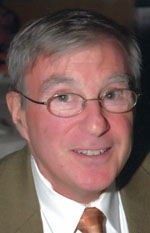#IsraeliJudaism: Portrait of a Cultural Revolution, Shmuel Rosner and Camil Fuchs, (translated from Hebrew by Eylon Levy), The Jewish People Policy Institute (JPPI), Jerusalem © 2019, ISBN 978-965-7549-26-1, p. 193, plus appendices and index, $19.99.

WINCHESTER, California – Although Western Jewry makes up a large portion of Israel’s population, Israeli Judaism is not American Judaism. Many in Israel trace their roots to Eastern Europe, yet Israeli Judaism is not nineteenth-century European Judaism. Israelis speak a dialect of Hebrew previously used in the Iberian Peninsula, but Israeli Judaism is not the Judaism practiced in Spain and Portugal during the fifteenth century. Modern Israel, unique in the annals of Jewish history, is simultaneously religious and secular: Some cities come to a standstill on the Sabbath, others bustle with business and clamor with beach goers. The flag looks like an ancient prayer shawl, its universities teach cutting-edge science. If modern Israel is a cauldron of diverse Jewish cultures and religious dogmas, what is Israeli Judaism?
#IsraeliJudaism is not the Book of Numbers, but a book of numbers, portraying the cultural revolution now taking place within Israeli society through extensive surveying of Israeli Jews by Shmuel Rosner, senior fellow of JPPI and Camil Fuchs, professor of statistics at Tel Aviv University, who, after carefully analyzing the data, position Israelis along two axes, the intensity of adhering to tradition and the strength of supporting the nation.
Rosner and Fuchs, going behind the statistics, offer a remarkable picture of Israeli Judaism and its supporting culture beginning with the question “What is Judaism?”, followed by the Zionist movement, which “aspired to reshape Jewish life and the collective identity of the Jewish people,” called old Israeli Judaism. Today’s Israeli culture differs from Jewish culture at the state’s founding: Israel is more ethnically diverse, its Jews practicing along a broader spectrum of beliefs. They live mostly in cities, not on kibbutzim or moshavim. They are self-governing, speak a modern form of Hebrew, follow the Jewish calendar, and openly display rather than hide their identity. They live in a country in which they never have to fear de jure anti-Semitism. Israelis are rabbis and talmudic scholars, estheticians and economists, police and politicians, taxi drivers and technical wizards.
The findings in #IsraeliJudaism suggest a new Israeli Judaism emerging from eroding identifications with the past, which Rosner and Fuchs classify into four types. Universalists (13%) minimize Jewish traditions and are not particularly supportive of the Jewish state. Israelis (15%) are also not principally observant of religious traditions, but are very nationalistic. Jews (17%), in contrast, observe many Jewish traditions, yet are not very patriotic. The final and largest category, called Jewsraelis (55%), are Jews who are both traditionalists and dedicated to Israel.
Each of these categories receives a thorough investigation. Who are its members? What are their religious practices? What about their allegiance to and support for Israel? Rosner and Fuchs build the case that Israelis are simultaneously becoming both religious and secular, a demographic race so-to-speak, “won by whichever group has more offspring or is more effective in drawing numbers from other groups.” They argue that Israeli Jews are changing religious practices, customs, and festivals by eliminating, altering, reinventing and creating traditions, as well as officially adding holidays to the Jewish calendar, something not done for millennia.
#IsraeliJudaism is a clear and easy read, no mathematical background is needed. For those who want more, the appendices hold the survey and statistical analysis. By holistically examining the behaviors, beliefs, opinions, and lifestyles of modern-day Israelis, Rosner and Fuchs, without political agenda or value judgments, cast a bright light on the blossoming, thriving, and maturing Israeli culture creating Jewsraelis.
*
Dr. Fred Reiss is a retired public and Hebrew school teacher and administrator. His works include: The Comprehensive Jewish and Civil Calendars: 2001 to 2240; The Jewish Calendar: History and Inner Workings, Second Edition; and Sepher Yetzirah: The Book That Started Kabbalah, Revised Edition. He may be contacted via fred.reiss@sdjewishworld.com.